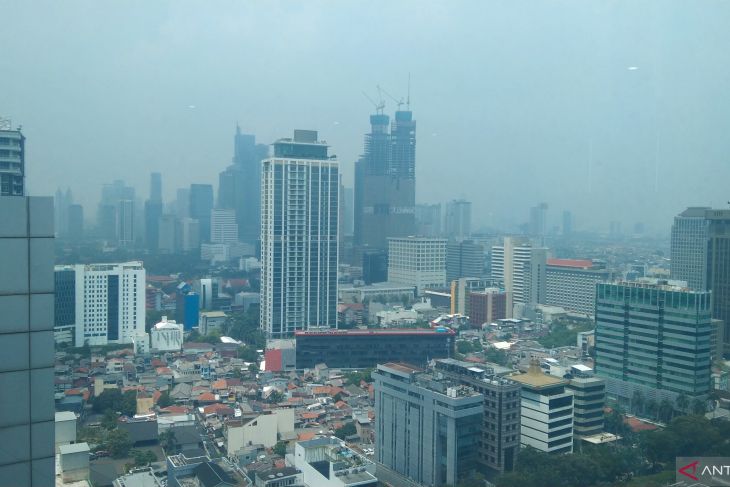JAKARTA – The Jakarta provincial government is aiming for a 41-percent decline in the levels of harmful PM2.5 pollutants by 2030 through the application of three strategies and 75 air pollution control action plans.
“This PM2.5 (pollutants) cause severe health impacts, both in the short and long term,” Head of the Jakarta Environmental Service (DLH) Asep Kuswanto stated during a public presentation on air pollution control strategies at the Jakarta City Hall on Monday.
Based on DLH’s presentation, the measurement results from five Air Quality Measurement Stations (SPKU) show that PM2.5 and PM10 pollutants are far above the national annual standard.
Jakarta’s air quality index from year to year is at a low level as compared to other areas, with a value of 53.50 to 78.78.
The three strategies implemented to reduce harmful pollutants are improving the management of air pollution control, reducing air pollution from mobile sources, and lowering emissions from immovable sources, Kuswanto affirmed.
He noted that the first strategy necessitated action plans including increasing the inventory of sustainable emissions and bolstering monitoring and evaluation to monitor and enforce the law on air pollution.
The second strategy is to reduce air pollution from mobile sources, including through the rejuvenation of public transportation, the development of environmentally friendly transportation for public transportation, and the government transportation as well, Kuswanto stated.
For environmentally friendly transportation, the Jakarta government, through the regional-owned transportation enterprises, BUMD TransJakarta, currently operates 30 electric buses and has set a target of 100 units by the end of 2022.
The other endeavors encompass implementing motor vehicle emission tests and the development of low-emission areas and improving infrastructure to support awareness of using public transportation for traffic engineering management.
The third strategy entails reducing emissions from immovable sources, includes increasing green open spaces, increasing the installation of rooftop solar panels, and controlling air pollution from industrial activities.
According to the plan, the three strategies and 75 action plans will be included in the governor’s regulation regarding the air pollution control strategy, which is currently in the finalization stage, Kuswanto stated.

